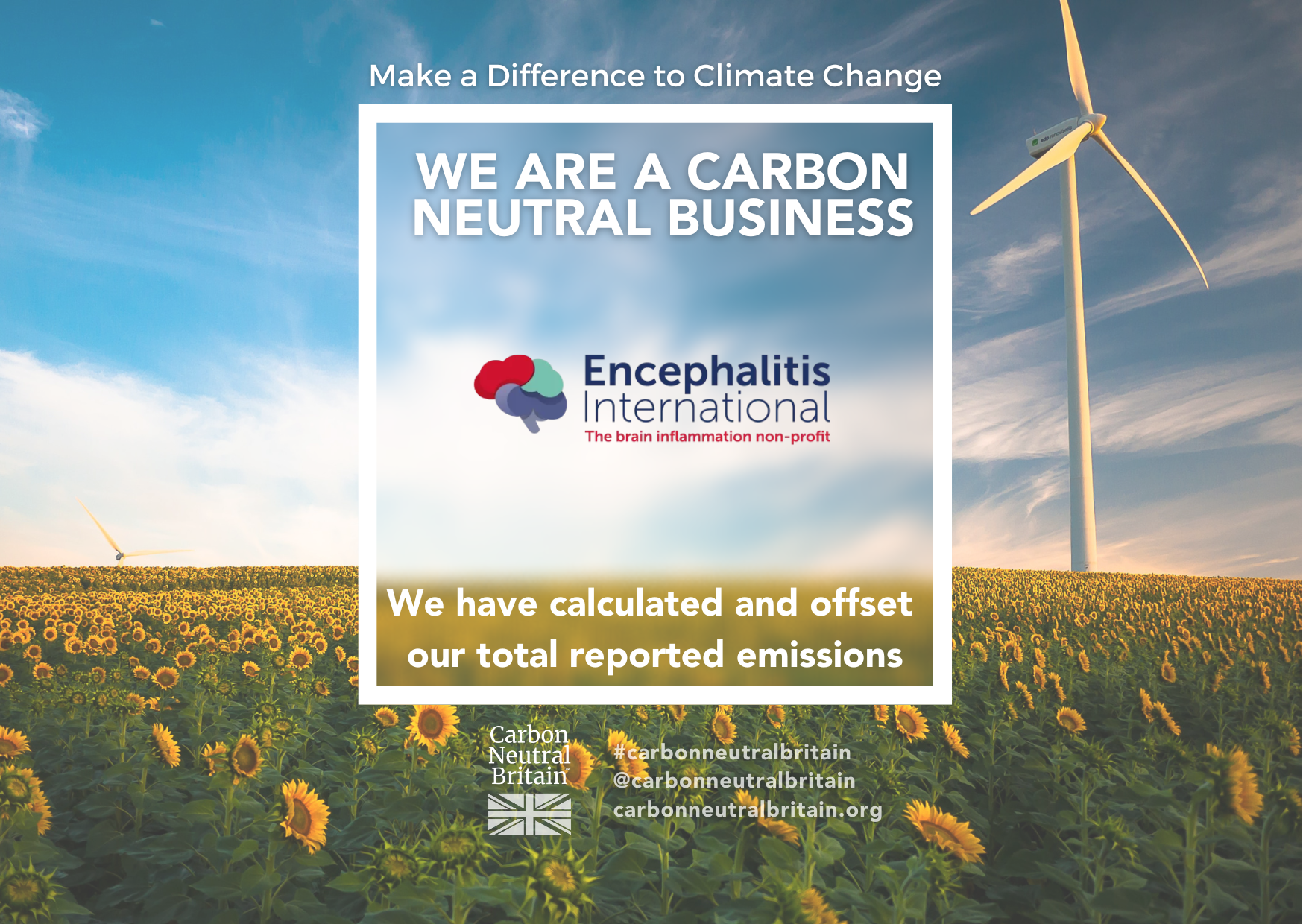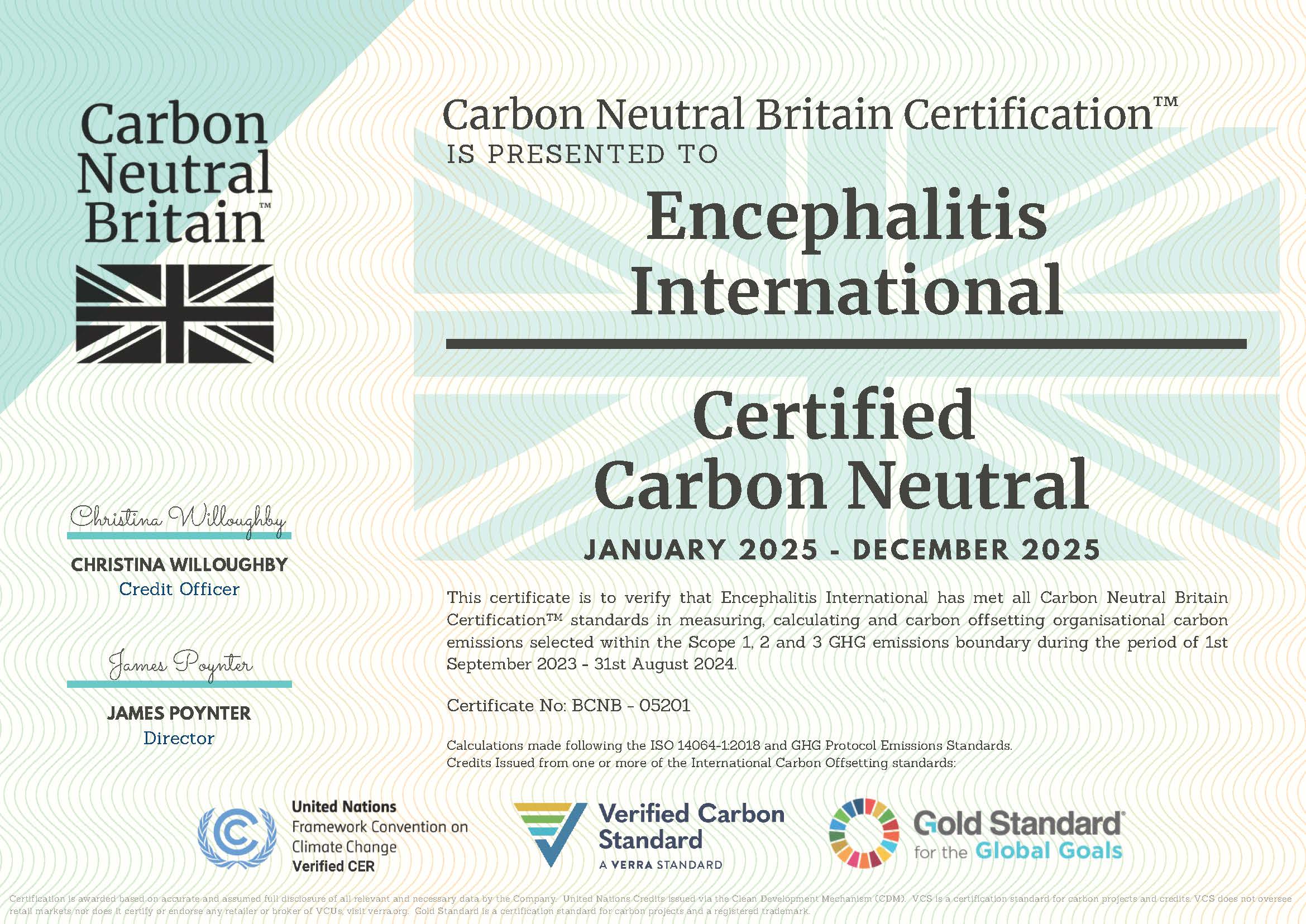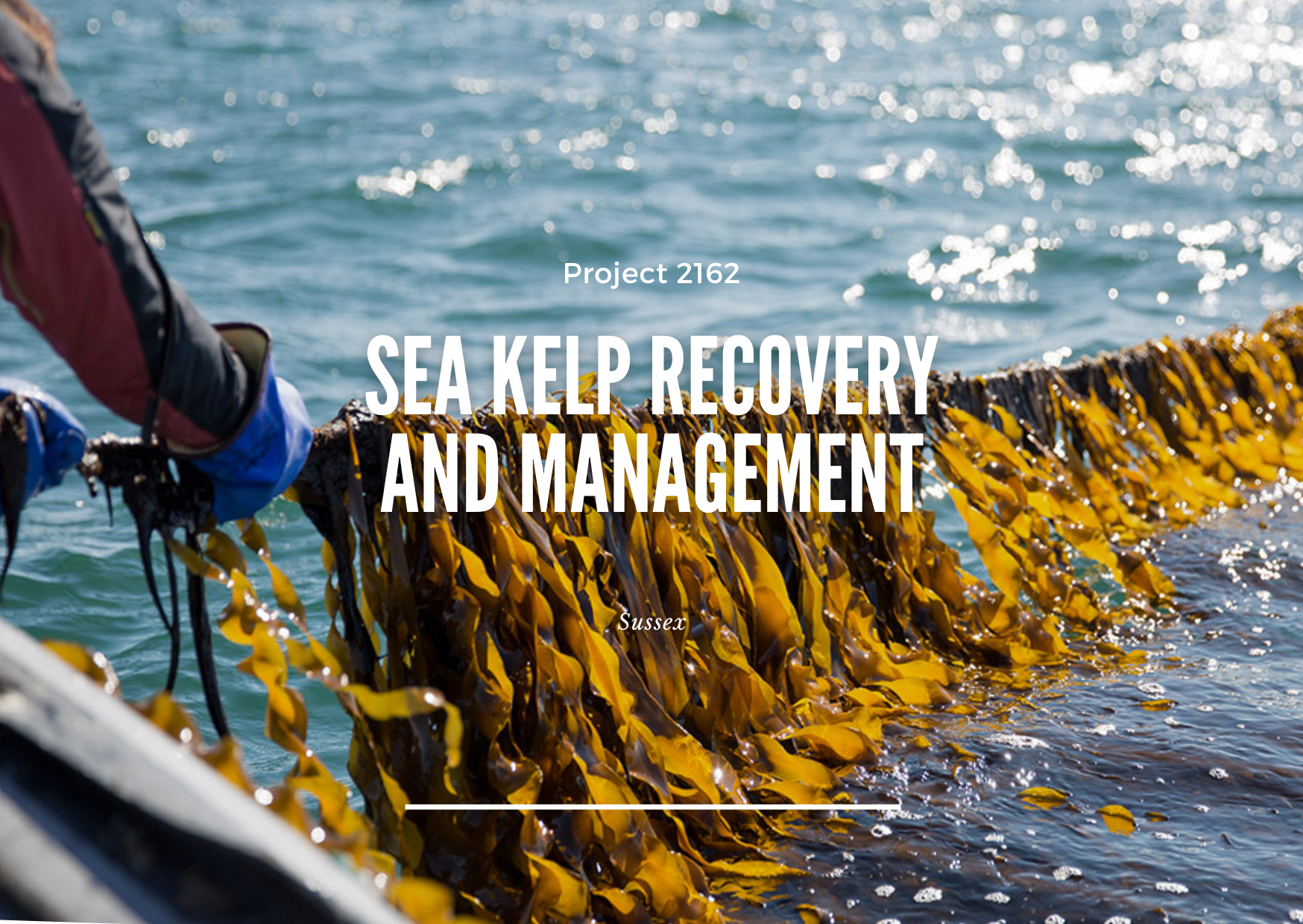Encephalitis International is Carbon Neutral!

We’re delighted to announce that we are now a carbon neutral verified organization and support verified carbon offsetting projects around the world!
What does carbon neutral organization mean?
An organization is carbon neutral when they calculate their carbon emissions and compensate for what they have produced via carbon offsetting projects. All projects supported are independently validated. They go above and beyond the requirements of the United Nations certified emission reduction (CER) credits), Verra and gold standard mechanisms.[i]
In order to achieve verification, we have calculated and offset our total reported emissions with Carbon Neutral Britain for 2023-2024.
Carbon Neutral Britain is the UK’s leading carbon offsetting initiative having offset over 3 million tonnes of CO₂ and planted over 2 million trees, helping stop climate change and providing essential forest habitats for endangered wildlife.[i]
We have also received a Carbon Reduction Plan (CRP) – the first step in reducing our future emissions. The plan will set emissions reductions targets to achieve net zero emissions, in addition to suggesting ways to reduce our carbon footprint for the future.
As part of our commitment, we will be supporting the Woodland Fund Portfolio carbon offsetting projects around the world. Specifically, a sea kelp recovery and management project enhancing biodiversity, promoting blue carbon habitats, and climate action along more than 40 kilometres of Sussex coastline.

Climate change and carbon offsetting
Increased CO₂ emissions in the atmosphere are the biggest cause of climate change. By carbon offsetting & becoming carbon neutral, we are doing our part for the planet NOW – when it is the most important.
Extreme weather events like droughts, floods, famine, and worsened air quality will have a huge effect on us for generations to come. These events are made more frequent and more severe by climate change. [ii]
Over 1 million species are at risk of extinction by climate change. Scientists estimate dozens of species of plants and animals currently go extinct each day —nearly 1,000 times the natural rate. Species diversity is crucial for ecosystem resilience, and without it, ecological communities will not have the strength to withstand change.[iii]
Climate change is also providing many deadly infectious diseases that can cause encephalitis with the opportunity to expand their reach, putting the health of millions of people at risk. You can find out more about how climate change affects encephalitis here: www.encephalitis.info/preventing-encephalitis

The future
By becoming a carbon neutral organisation, we hope to make a difference to climate change now. We are planning to make this an ongoing process where we measure and offset our emissions every year.
Look out for our climate change and encephalitis work! You can listen to our podcast on climate change and encephalitis with Dr Jim Sejvar here: The Encephalitis Podcast Ep 41 – Climate change and encephalitis with Dr Jim Sejvar
References:
[i] Carbon Neutral Britain. Carbon Neutral BritainTM – the UK Carbon Offsetting Initiative. [online] Available at: https://carbonneutralbritain.org/.
[ii] NASA (2024). Extreme Weather and Climate Change. [online] NASA. Available at: https://science.nasa.gov/climate-change/extreme-weather/.
[iii] WWF (2020). How many species are we losing? [online] wwf.panda.org. Available at: https://wwf.panda.org/discover/our_focus/biodiversity/biodiversity/.
